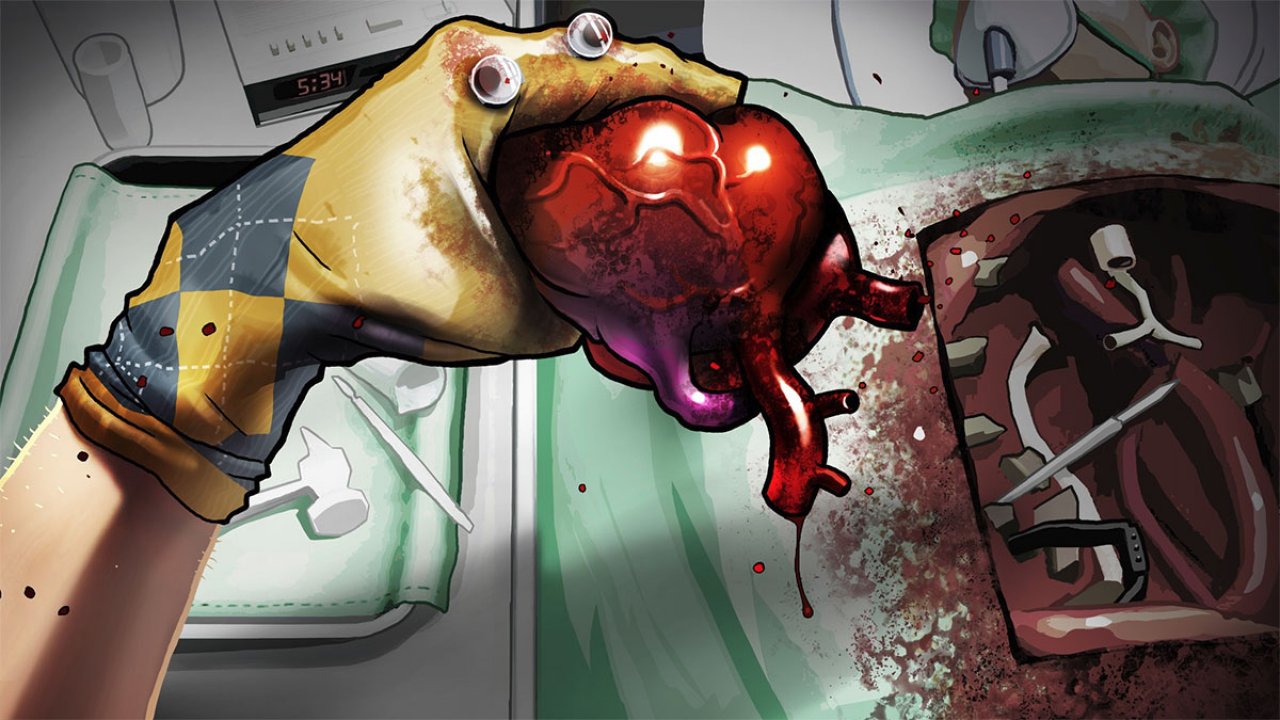Compared to other forms of entertainment, gaming is still in its infancy, and the industry as a whole still has many issues to figure out. One has been on my mind especially, for quite some time now:
What makes a game a good joke? Let me explain.
Let’s look at the recent flood of releases in the vein of Surgeon Simulator and Goat Simulator. On one hand, comedy is nothing new in gaming. On the other, that design certainly is. The trend has been going on for a few years now, and I must say, it’s hard for me to wrap my head around it.
Why? Because their existence is part of the very joke they're telling. The premise is the setup and playing it is the punchline. How do you properly analyze jokes? Do you still analyze the design elements? Do you treat it like a gag? Where do you draw the line for what is worth looking into and what is meant to be a farce?
Humoristic game development is changing.
Gags existed in the past, but they weren’t noteworthy to the extent they are today. Increased access to development tools and online distribution made comedians jump on the indie gaming train wagon. Similar to how YouTube Poop arose, after YouTube made their process easier, silly games became a reality after Valve lowered the bar to its program Steam Greenlight. YouTube, for that matter, also takes credit for this ongoing trend. YouTubers have and continue to make popular videos, that come and support these humoristic indie developers. By entertaining through games, videos generate further interest among gamers.
Whether or not one will enjoy these somewhat unconventional and casual gaming experiences really comes down to a common denominator: personality.
I personally don’t believe art is objective, and by the same token, comedy is subjective. People will react differently, based on their culture and life experiences. My personal experience has been as follows.
Goat Simulator I simply didn’t get.
he concept definitely had comic potential, but it felt to aimless for my taste. It’s a sandbox game - not a particularly interesting one for that matter - in which you can interact with props in goofy ways and try to be as crazy as you can. I didn’t get it, yet a quick glance at the stats on Steam Charts showed me that others most certainly did. Perhaps I value quality in game design, and that is a necessary requisite to me even if the for games who try to make me laugh.
Then is Surgeon Simulator.
here I find continuous value, perhaps because of the constant update in content that the developers have added since release, and I would enjoy revisiting it even after it left the spotlight. The game has so many possibilities for fun gameplay. The control system is innovative, and it allows for different personalities to approach it each in their own way. The goal is an engaging and focused one, and there is so much possibility for things to happen that the humor embedded into its mechanics can come out in many shapes. Unlike Goat Simulator, each play through is unique, and that makes for great comedy even in simple commentaries.
Last but not least is Jazzpunk
Clearly inspired by titles developed by Blendo Games (Gravity Bone and Thirty Flights of Loving), most of it revolves around completing short missions and encountering gags and jokes along the way. If you want an example of a gag that you only play once, this is probably one of the best out there. Not all of the jokes worked on me, but there is something to be said for art design and how a game’s style can support its comical aspect. Sadly, it’s $15, and you’ll beat it in two hours without rushing. On a side note, I highly recommend VideoGameDunky’s video that not only covers the game’s strongest moments, but also adds to its value with unique commentaries that will make playing the game less engrossing than watching it played.
In sum, power to the YouTubers.
Yes, comedy is a matter of taste. Some find Goat Simulator charming and hilarious, and some just won’t get it. Mediocrity in all facets other than the gag itself can push some back while others won’t care. I belong in the first group, as I often find myself frustrated with all the low-effort simulators that keep popping up left and right on Greenlight. Yet sometimes, I’ll admit, it’s great to kick back and not take things seriously, as we often do when awaiting the next AAA release. Isn’t that, after all, the power of indie?

